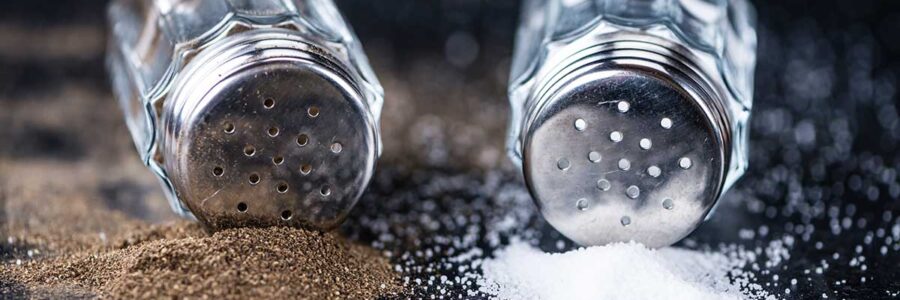Most of us reach for salt and pepper daily without a second thought, assuming they’re simple and safe staples of a healthy diet. But beneath the surface, many popular brands of salt and pepper are tainted with toxic heavy metals like lead, cadmium, and mercury. These contaminants can quietly accumulate in your body, leading to serious health challenges such as hormonal disruption, cognitive decline, and even chronic disease.
The Oversight Gap in Salt Quality
Salt may seem straightforward, but its safety depends heavily on its sourcing and production. Sea salt, often considered a healthier alternative, can be contaminated by pollutants in the oceans where it’s harvested. Meanwhile, Himalayan salt, mined from ancient deposits, is not immune to issues like heavy metal contamination from the surrounding earth. Without standardized quality control measures, these risks remain largely unchecked in the market.[1]
Pepper’s Connection to Soil Contamination
Peppercorns, while a natural product, can concentrate toxins from the environment where they’re grown. Soil containing heavy metals such as cadmium or lead transfers these contaminants directly into the plants. Compounding the issue is the potential for contamination during processing, as low-grade equipment or inadequate cleaning protocols can introduce additional hazards. These factors make it clear that not all pepper is created equal.[2]
The Long-Term Effects of Heavy Metal Exposure
The real danger of heavy metals lies in their ability to persist in the body. Lead, for instance, can impair brain development and damage hormonal systems. Cadmium is associated with kidney dysfunction and bone loss, while mercury affects neurological health. The cumulative exposure over time can lead to significant health issues for those who consume contaminated salt and pepper regularly.[3]
How to Make Safer Choices
Protecting yourself from these risks starts with identifying brands that value transparency. A Certificate of Analysis (COA) is a crucial tool, providing detailed information about the levels of heavy metals in a product. Look for salt and pepper brands that meet these safety benchmarks:[4]
- Lead and cadmium: Less than 50 parts per billion (ppb)
- Mercury: Less than 10 parts per billion (ppb)
Why Shopping Online Is Often Safer
While grocery store options may be convenient, they rarely come with the transparency needed to evaluate safety. Shopping online opens the door to trusted brands focusing on purity and accountability. Many smaller producers specialize in unrefined salts and carefully sourced peppercorns, ensuring higher quality and reduced contamination risk. The slight additional cost is an investment in long-term health.
Small Choices, Big Impacts
Every decision about what goes on your plate matters, and salt and pepper are no exception. By prioritizing cleaner seasonings from trusted sources, you reduce exposure to harmful toxins and support better overall health. It’s a small but powerful way to take control of your wellness journey, starting with the essentials.
References:
- Ziani, Khaled, et al. “Microplastics: A Real Global Threat for Environment and Food Safety: A State of the Art Review.” Nutrients, vol. 15, no. 3, Jan. 2023, p. 617.
- Lidiková, Judita, et al. “Heavy Metals Presence in the Soil and Their Content in Selected Varieties of Chili Peppers in Slovakia.” Foods, vol. 10, no. 8, July 2021, p. 1738.
- Balali-Mood, Mahdi, et al. “Toxic Mechanisms of Five Heavy Metals: Mercury, Lead, Chromium, Cadmium, and Arsenic.” Frontiers in Pharmacology, vol. 12, Apr. 2021, p. 643972.
- Arundhathy Shabu.Certificate of Analysis (COA): Ensuring Quality and Food Safety, Guaranteeing Compliance.Oct 10, 2023.https://smartfoodsafe.com/certificate-of-analysis-coa/


